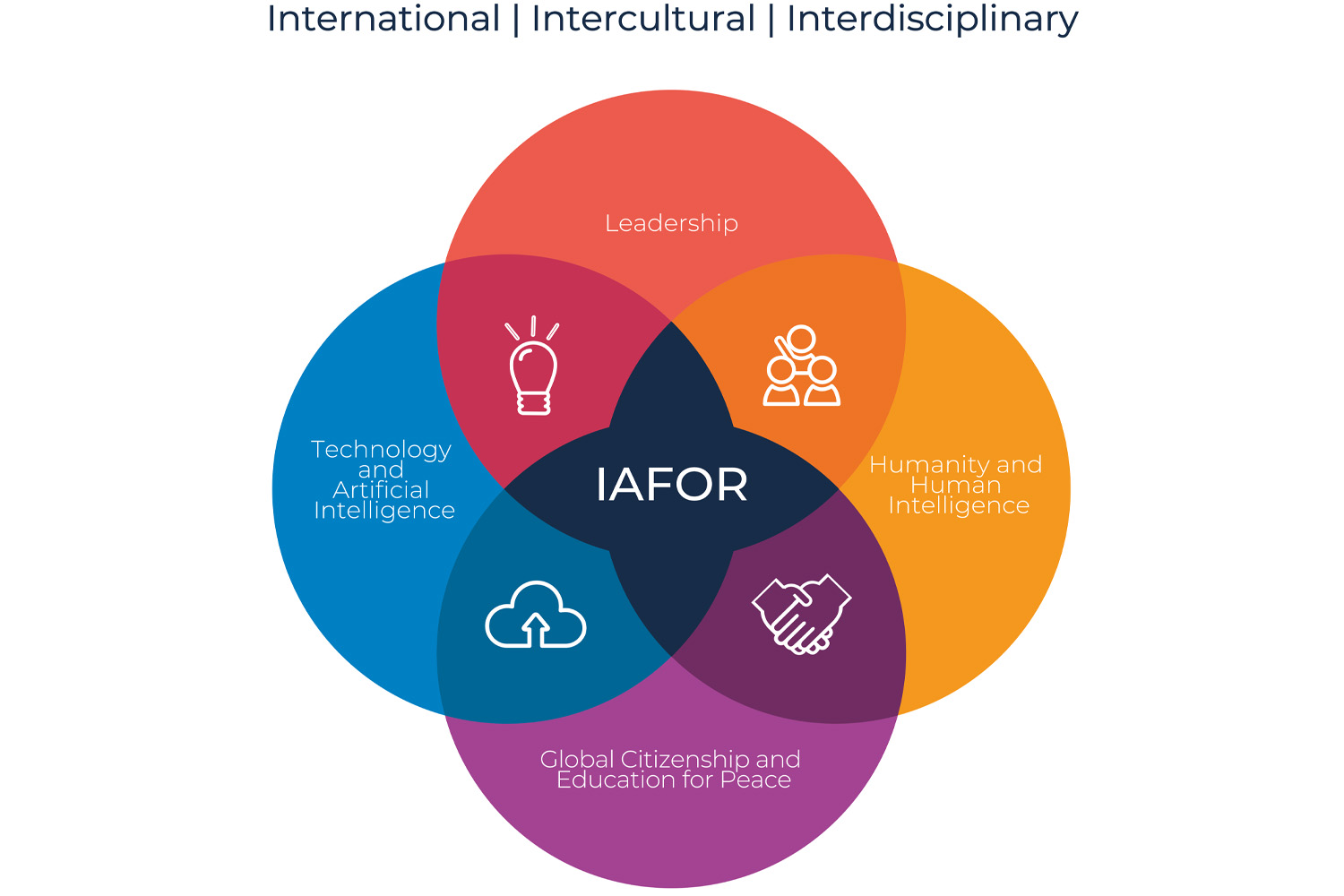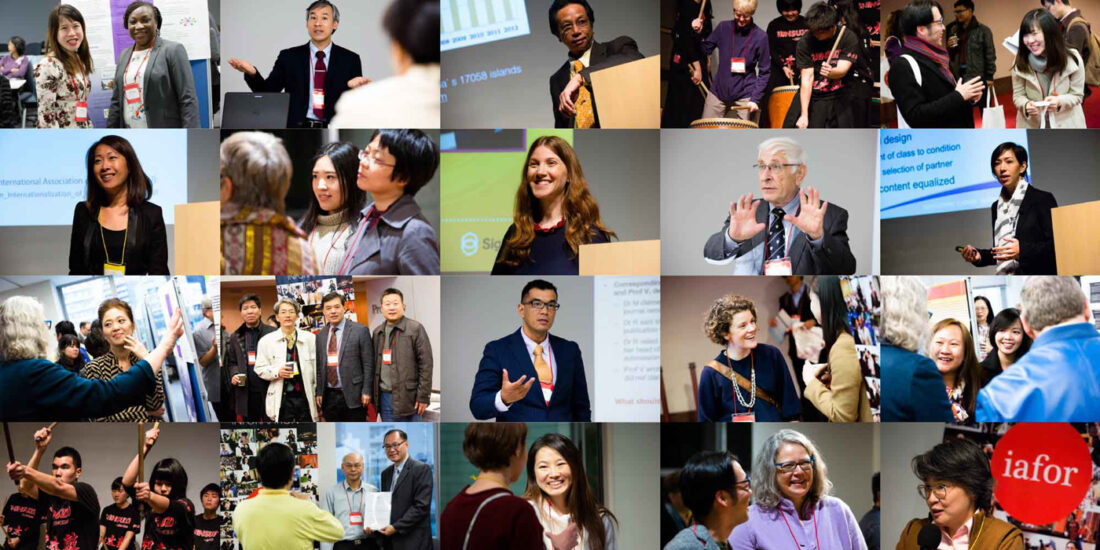- Conference Dates: Sunday, March 22, 2026 to Friday, March 27, 2026
- Early Bird Abstract Submission Deadline: September 18, 2025*
- Final Abstract Submission Deadline: December 12, 2025
- Results of abstract review returned to authors: Generally within four weeks
- Full conference registration fees due for all presenters: January 22, 2026
- Full conference paper submission (after the event): April 24, 2026
*Submit early to take advantage of the discounted registration rates. Learn more about our registration options.
The Conference Programme Committee is calling for abstract submissions. To present your research at the conference your abstract must first pass a double-blind peer review. Upon payment of registration fees, your attendance at the conference will be confirmed. Submit well before the submission deadline in order to benefit from Early Bird or Advanced Registration rates.
Submission Streams
The Conference Programme Committee welcomes papers from a wide variety of interdisciplinary and theoretical perspectives, and submissions are organised into the streams and sub-streams listed below:
- Diversity in Global Contexts
- Education & Socio-Economic Development
- Education & Development: Local & Global/Domestic & International
- Education: Public & Private Partnerships
- Economics & Management of Education
- Literacy: Poverty & Sustainability
- Innovation & Value
Sub-themes
Submissions are organised into the following sub-themes:
Teaching & Learning
- Learning Experiences, Student Learning & Learner Diversity
- Teaching Experiences, Pedagogy, Practice & Praxis
- Assessment Theories & Methodologies
- Curriculum Design & Development
- Adult, Lifelong & Distance Learning
- Education & Difference: Gifted Education, Special Education, Learning Difficulties & Disability
- Interdisciplinary, Multidisciplinary & Transdisciplinary Education
Educational Structures
- Educational Policy, Leadership, Management & Administration
- Educational Research, Development & Publishing
- Professional Training, Development & Concerns in Education
- Primary & Secondary Education
- Higher Education
Community & Society
- Education, Sustainability & Society: Social Justice, Development & Political Movements
- International Education
Language & Culture
- Language Development & Literacy
- Foreign Languages Education & Applied Linguistics (including ESL/TESL/TEFL)
- Challenging & Preserving: Culture, Inter/Multiculturalism & Language
Psychology, Mind & Brain
- Mind, Brain & Psychology: Human Emotional & Cognitive Development & Outcomes within Educational Contexts
- Counselling, Guidance & Adjustment in Education
Innovation & Technology
- Design, Implementation & Assessment of Innovative Technologies in Education
- Nurturing Creativity & Innovation: New, Innovative & Radical Education
- Knowledge Creation, Preservation & Access: Curation, Librarianship, Information & Archival Science
IAFOR's Conference Themes for 2025-2029
IAFOR’s conference programme provides an essential comparative and contrastive space for people to engage in multidisciplinary research across borders of nation, culture, discipline, and professions. We encourage mixed approaches and methodologies, combining theory and practice between and across the disciplines, and we look to harness the collective intelligence of our International Academic Forum in addressing some of the most pressing issues of our time. Through the implementation of new formats in our conference programme over the last year, including Intelligence Briefings, Keynote Interviews, and The Forum, we gathered insights into what has been discussed at the theoretical and policy levels, identify the challenges, and the outlook for best practices in tackling global contemporary issues, which we have identified as the themes for 2025-2029.
Our selected themes for 2025-2029 bring together ideas and encourage research and synergies in the following areas.

Our four themes can be seen as standalone themes, but they are also very much in conversation with each other. Themes may be seen as corollaries, complementary, or in opposition/juxtaposition with each other. The themes can be considered as widely as possible and are designed, in keeping with our mission, to encourage ideas across the disciplines.
How to Submit Your Abstract
- Before you Begin
The corresponding author must collect and enter the following information for the abstract submission:
- Contact data - Correct spelling of first and last name, rank, affiliation, affiliation country
- Paper Title - Full paper title for the presentation
- Paper Abstract - 250-word abstract - To submit, go to IAFOR's online submission system.
- Login or Create your account
Your email address will be used as your username and you will be asked to create a password. Please be aware that the information you enter when creating your account will be used for official Letters of Acceptance, Letters of Invitation, and Conference Programmes, so please ensure correct spelling of names, affiliated institutions, and so forth. - Submit your Proposal
Submit your abstract (maximum 250 words), choosing from the available presentation formats listed below (Oral, Poster, Panel, Workshop, Live-Stream, or Virtual). - Initial Screening
Your submission will be checked by staff to ensure it conforms to accepted academic norms, and to screen out incomplete submissions. After the initial screening has been completed you will receive a notification by email. Submissions are assigned a submission number at this stage and you can check on the status of your abstract submission by logging in to the online submission system. The status is displayed in the "Your Submissions" area. - Review
Your submission will undergo double-blind peer and a final review by the Programme Committee. - Result Notification
A result notification will usually be sent to you generally within four weeks. If your abstract is accepted you will be invited to register for the conference. A Letter of Acceptance will be available for download from "Your Submissions" area in the online submission system. - Registration
Conference registration is open on the conference website. All individuals who wish to present at the conference are required to submit conference registration payment by the registration deadline. Upon payment of the registration fee, you will receive a confirmation email containing your official receipt. The submission WILL NOT appear in the Printed Programme unless at least one author of the submission is registered by the registration deadline.
Presentation Formats
Review System
Authors as Reviewers: A Reciprocal System
Our academic events would not be what they are without a commitment to ensuring adherence to international norms of abstract peer review. IAFOR relies on a large number of international scholars from around the world to contribute to a shared vision of promoting and engaging in international, intercultural and interdisciplinary dialogue, and if you are taking part in an IAFOR event, then that would mean you. Authors may be asked to review up to five abstracts for the conference. You are under no obligation to participate in this reciprocal system, but if you are selected to review, and undertake this task of grading abstracts for the conference, you will be credited in the conference programme.
Scheduling Requests
Because of the complexity of putting the Conference Programme together and the large numbers of participants involved, it is not usually possible to accommodate requests for specific presentation days or times. We ask that you reserve requests for religious reasons or other exceptional and unavoidable circumstances.
We encourage participants to attend the conference each day in order to benefit fully from the experience. While requests for specific presentation days or times are not accepted other than under exceptional circumstances, you may request one blackout day – a day on which you will not be scheduled to present at the conference.
Scheduling requests will not be accepted after the registration deadline.
Conference Proceedings
If you wish your paper to be published in the Conference Proceedings, once you have registered please ensure that you upload your full paper through the online system by April 24, 2026.
Final papers are only accepted in Microsoft Word format. Before submitting your paper please ensure that you have read the Final Paper Guidelines and formatted your paper correctly.
The official Conference Proceedings will be published online in a PDF format under an ISSN issued by the National Diet Library of Japan on June 10, 2026.
Publication & Licensing Issues
IAFOR believes in “Open Access” publishing, and since 2009, has been committed to maintaining an online searchable research archive that offers free access to anyone, anywhere, where there is Internet access, regardless of institutional affiliation or scholarly rank. IAFOR publications are accessible on the website (Open Access) to researchers all over the world, completely free of charge and without delay or embargo. Authors and contributors are not required to pay charges of any sort towards the publication of IAFOR journals.
Abstracts, research papers, and video footage are published under an IAFOR user license and are protected by copyright. Users may access, download, copy, translate, text and data mine, redistribute, display or adapt the articles for non-commercial purposes provided that users follow the guidelines set out in the IAFOR User License.
Journals and other forms of print and digital media will be made available by IAFOR to the general public on an online, Open Access basis. By publishing their work with IAFOR, authors enter into an exclusive License Agreement, where they have copyright but license exclusive rights in their article to IAFOR as the publisher.
Ethical Conduct
IAFOR takes ethical conduct very seriously, and considers any form of plagiarism unacceptable. IAFOR follows guidelines from the Committee on Publication Ethics (COPE) in relation to conference submissions and publications. Papers that contain redundant publication (reusing one's own writing verbatim or in a substantially similar form) or plagiarism (using another author's writing without attribution) will be rejected without further review, and additional action will be taken as appropriate. To verify compliance, submissions may be checked by Crossref Similarity Check and other originality or duplicate checking software.
The Use of Generative AI
and AI-assisted Technologies
IAFOR follows Elsevier's AI author policy for use of generative AI and AI-assisted technologies in writing. Authors are allowed to use generative AI and AI-assisted technologies in the writing process before submission, but only to improve the language and readability of their paper and with the appropriate disclosure. This does not apply to the use of basic tools for checking grammar, spelling, references etc.

